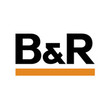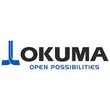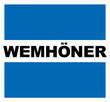|
|








|
Назад
Situated in north-eastern Europe with a coastline along the Baltic Sea, Latvia has borders with Estonia, Russia, Belarus and Lithuania. It has linguistic links with Lithuania to the south and historical and religious ties with Estonia to the north.
Not much more than a decade after it declared independence following the collapse of the USSR, Latvia was welcomed as an EU member in May 2004. The move came just weeks after it joined Nato. These developments would have been extremely hard to imagine in the 51 years when Latvia - like Estonia and Lithuania - was occupied by the Soviet Union.
For centuries Latvia was primarily an agricultural country, with seafaring, fishing and forestry as other important factors in its economy.
Continue reading the main story
At a glance
Politics: Latvia regained its independence following the collapse of the Soviet Union in 1991. Presence of a large ethnic Russian minority is a sensitive issue
Economy: Latvia made a rapid transformation to a market economy after independence
International: Latvia is a member of the European Union and Nato
Country profiles compiled by BBC Monitoring
Latvia was under foreign rule from the 13th until the 20th century, but managed to keep its unique language and rich cultural and especially musical traditions alive. After the First World War it declared independence from Russia, which recognised it in 1920.
Two decades later, following a pact between Stalin and Hitler, Soviet troops invaded in 1940 and Latvia was absorbed into the Soviet Union. Nazi forces pushed the Soviets back in 1941 but the Red Army returned in 1944 and remained for half a century.
During the Soviet period Latvia underwent heavy industrialisation, and experienced a big influx of immigrants from other parts of the USSR, mainly Russia.
About a quarter of the population is Russian-speaking and the rights of this section of society have been a thorny issue since independence. Government reforms introduced in 2004 to restrict the use of the Russian language in schools remain controversial.
Legislation on citizenship was toughened up in 2006. Candidates who fail a Latvian language test three times will be denied citizenship. People without citizenship are entitled neither to vote nor to obtain an EU passport.
Like its Baltic neighbours, in the decade after independence Latvia made a rapid transformation to embrace the free market.
Latvia's economy grew by 50% between 2004 and 2007 but the global financial crisis of 2008-9 hit the country hard, and the former Baltic tiger endured one of the worst recessions in the EU.
The social turmoil triggered by the financial crisis led to the fall of the Godmanis government in February 2009. By January 2010, unemployment had soared to 20%, prompting fears of further political instability.
Deep public spending cuts introduced by the subsequent Dombrovskis government led to discontent at home, but impressed international lenders enough to earn Latvia an IMF/European Union 7.5bn euro ($10bn) bailout. This has helped Latvia's economic recovery, and it returned to growth in 2011. Unemployment nonetheless remains persistently high.
|
|








































